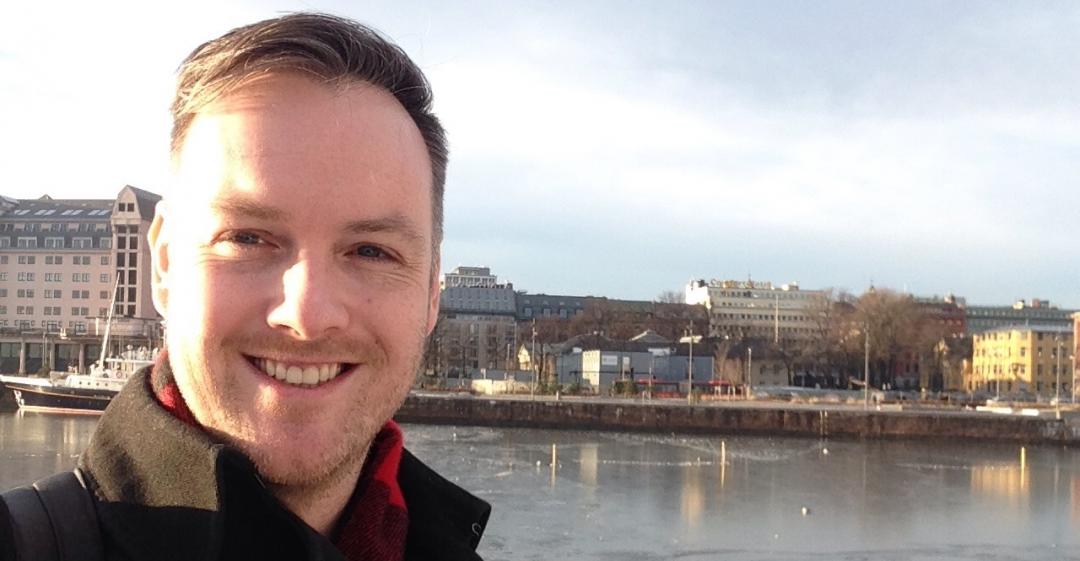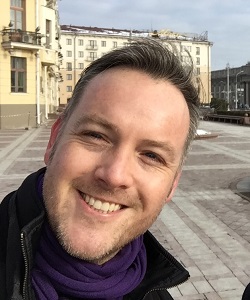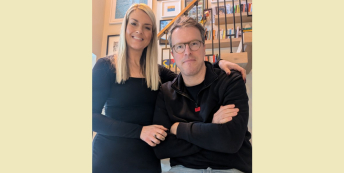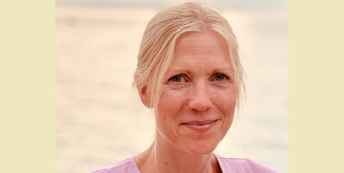“I was at the end of my tether. I knew I couldn't carry on Googling for answers.”

What work were you doing previously?
I'd been a technical writer for most of my career and was working in a role at a large software company.
What are you doing now?
I'm a senior UX (user experience) designer for a medium-sized software start-up.
Why did you change?
I'd been unhappy for over five years.
I didn't want to go to work. I brought home a lot of negativity. And I was tired all the time.
I could sit in front of the TV for hours. It was constantly on my mind: “What am I going to do?”
I kept having this recurring dream of facing a wall that I had to climb over.
When was the moment you decided to make the change?
I was at the end of my tether.
I knew I couldn't carry on Googling for answers but never actually doing anything about it. My partner suggested I try to find someone to help me. That's when I discovered Careershifters.
Are you happy with the change?
Yes!
I've got a role that I love. I feel happy to be working in technology and software. And I'm good at it – I was part of a team last year that won a gold award at the A'Design Award and Competition, one of the biggest design awards in the world.
I've made a whole load of new friends along the way and I have more headspace that I can fill with positive stuff. I still have to get prepared for work on a Sunday night but I never get the fear anymore. I love doing my job.
Even my hairdresser has commented on how I've done the right thing – because I don't moan about work anymore when I'm there!
What do you miss and what don't you miss?
I had fab colleagues and a great manager in my old work but apart from them I don't really miss anything.
I was quite senior as technical writer, but as a designer I can make more things happen and it will just take time to build my experience to the same level.
How did you go about making the shift?
Through the Careershifters programme I got over the ruminating and procrastinating that had held me back before and I started to initiate conversations.
At work I made an effort to talk to different people and one of those was a former colleague who was working as a UX designer. She suggested I apply for a role with her team and I was successful based on my previous work and approach.
From there I focused on getting the experience I needed to ultimately move externally. I took my time and moved around in the company and to different locations over about three years before I moved to my current role.
What didn't go well? What wrong turns did you take?
I don't feel like anything went wrong but I certainly questioned what I was doing many times.
All the way from the initial internal change to getting my new external role I kept asking myself if I should've taken an easier option. Ultimately I achieved everything I'd planned for within the timeframe I originally gave myself.
How did you handle your finances to make your shift possible?
Maintaining my salary was one of the targets I gave myself for my career change and I achieved that.
What was the most difficult thing about changing?
Getting into a new headspace and away from the ruminating and self-judgement that had become a habit for me.
I eventually got out there and spoke to a ton of people, but it was tough getting over that initial hurdle. I remember it took me a whole three-hour train journey to compose one message to reach out to someone.
With practice I learnt that the worst that could happen would be a knock back. And I also realised I could just try something and give it a go, without needing to know beforehand if I liked it or was good at it.
What help did you get? 
Working with Careershifters helped me to completely shift my perspective and got me to where I am now.
Being part of a group and sharing the process with others in the same boat helped a lot. I have a whole tool kit to use for life now, not just a few job options.
My partner has also been a huge support throughout.
What resources would you recommend to others?
I would not recommend looking on the internet for job descriptions! That's the career change equivalent of Dr Google.
The answer isn't online, it's out in the real world.
Talk to people outside of your own circle. Find someone that's empathetic and can help you to unlock what's inside you already.
What have you learnt in the process?
I'd felt that my career to date was absolutely useless, but I began to see that I didn't need a huge shift, just some help in bringing things together.
I learned how to throw the pieces of Lego on the floor, add a few extras and build them into a new role and career path.
I've been able to bring more of myself into my career now. I do something that's a fit and that I can happily talk about. I didn't make a dramatic shift in terms of industry – or even company, initially – but my life is completely different.
I also learned that people love talking about what they do and I loved connecting with them. I enjoyed getting into their heads, finding out what worked for them and figuring out how to talk to them at their level. I use all of these skills in the work that I do now.
What do you wish you'd done differently?
I wish I'd done it a couple of years earlier!
What would you advise others to do in the same situation?
Stop thinking about it and do something! You can learn to let go of that frown.
What lessons could you take from Dan's story to use in your own career change? Let us know in the comments below.



